Ταυρική Χερσόνησος και Κιμμέριος Βόσπορος
Paeninsula Taurica et Bosporus Cimmerius
Sindi / Σινδοί
|
Comments
- Click on images
and links for details - The size of the images reflects the relative size of the coins - Dates reflect the maximum range found in the literature - Red registration numbers indicate the collection of the webmaster, Green numbers are a virtual collection, shown courtesy of: Classical Numismatic Group (CNG), Lancaster PA Dr. Hubert Lanz, München Fritz Rudolf Kuenker Muenzenhandlung, Osnabrück Gorny & Mosch, München Jean Elsen & ses Fils s.a.,Brussels Münzkabinett Berlin - Stiftung Preußischer Kulturbesitz - Reproduction rights for all images remain with the owner ! |
| Hansen
& Nielsen (An Inventory of Archaic and Classical Poleis, 2004)
relate that Sindike/Sindikos Limen (Sindikos Harbour) "was established
by Greeks in the 6th century as a trading centre in the territory of
the indigenous population (the Sindoi)". The location of Sindikos Limen
remains a matter of scholarly debate; Strabo's passage (11.2.10) about
the location of Gorgippia provides grounds for different
interpretations; "some scholars take Strabo's information to mean that
Gorgippia was the capital of the Sindoi, and the most widespread
opinion is that Sindike/Sindikos Limen/Gorgippia are all the same
place, but with different names in use at different times. It appears
likely that Sindikos Limen was renamed Gorgippia some time in the 4th
century when the territory of the Dindoi was incorporated into the
Bosporan Kingdom by Leukon I (389/8-349/8), being so named after a
member of the Bosporan Spartokid dynasty, Gorgippos, who ruled together
with his brother Leukon I, and who was probably installed as governor
of the city - this interpretation is supported by the 'royal' tiles of
the 4th century, which carry the stamp: ΓΟΡ-ΓΙΠ-ΠOY". [Roma Num. XVIII/364, 9.9.2019] |
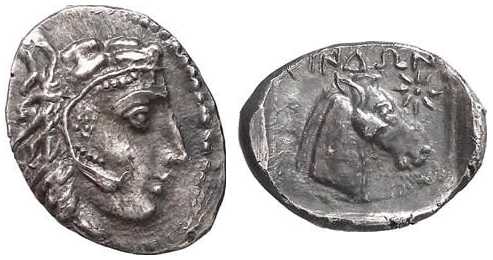 |
| SHH
2108 |
| Herakles
/
Horse
AR 15-18 mm 1.76-2.66 g 425-375 BC Anochin 42; Frolova 1/2; HGC VII 1; MacDonald 78 Statistics 1/1 Images 1/1 |
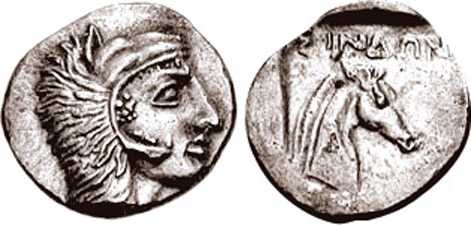 |
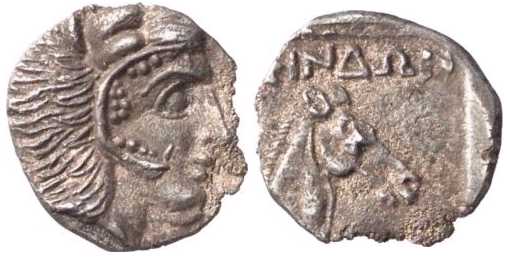 |
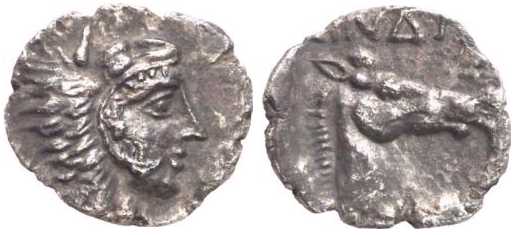 |
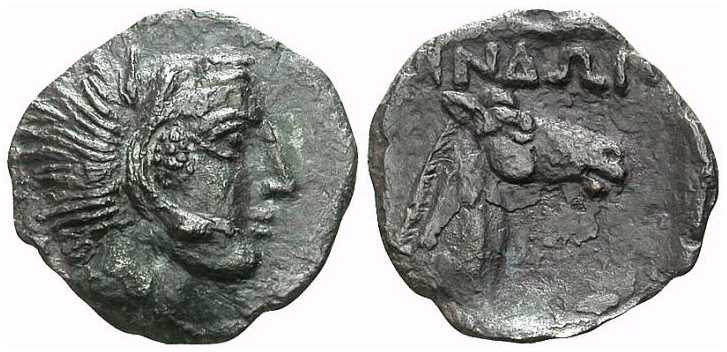 |
| SHH
1168 |
SHH
2342 |
SHH 2343 | SHH 2574 |
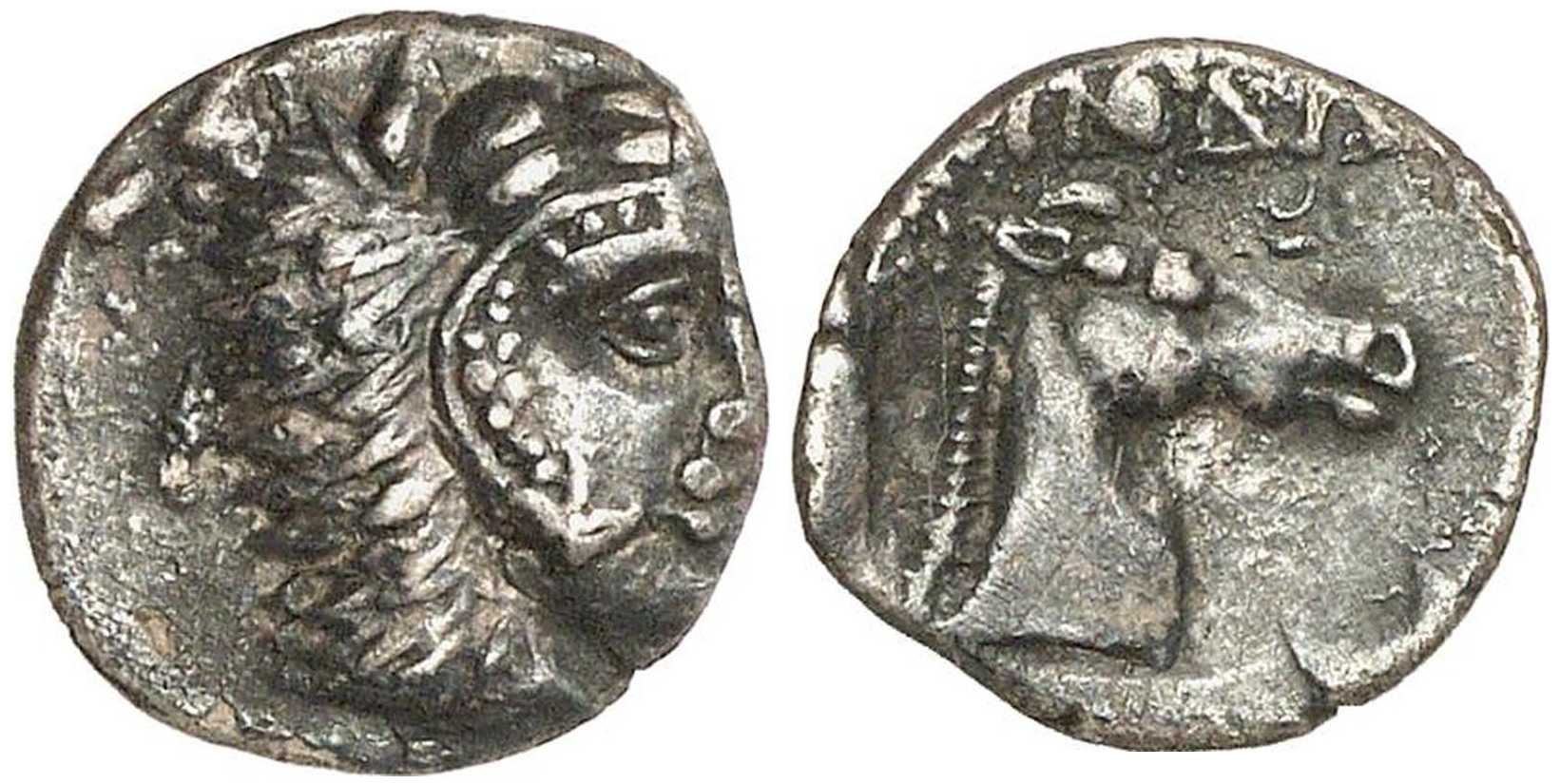 |
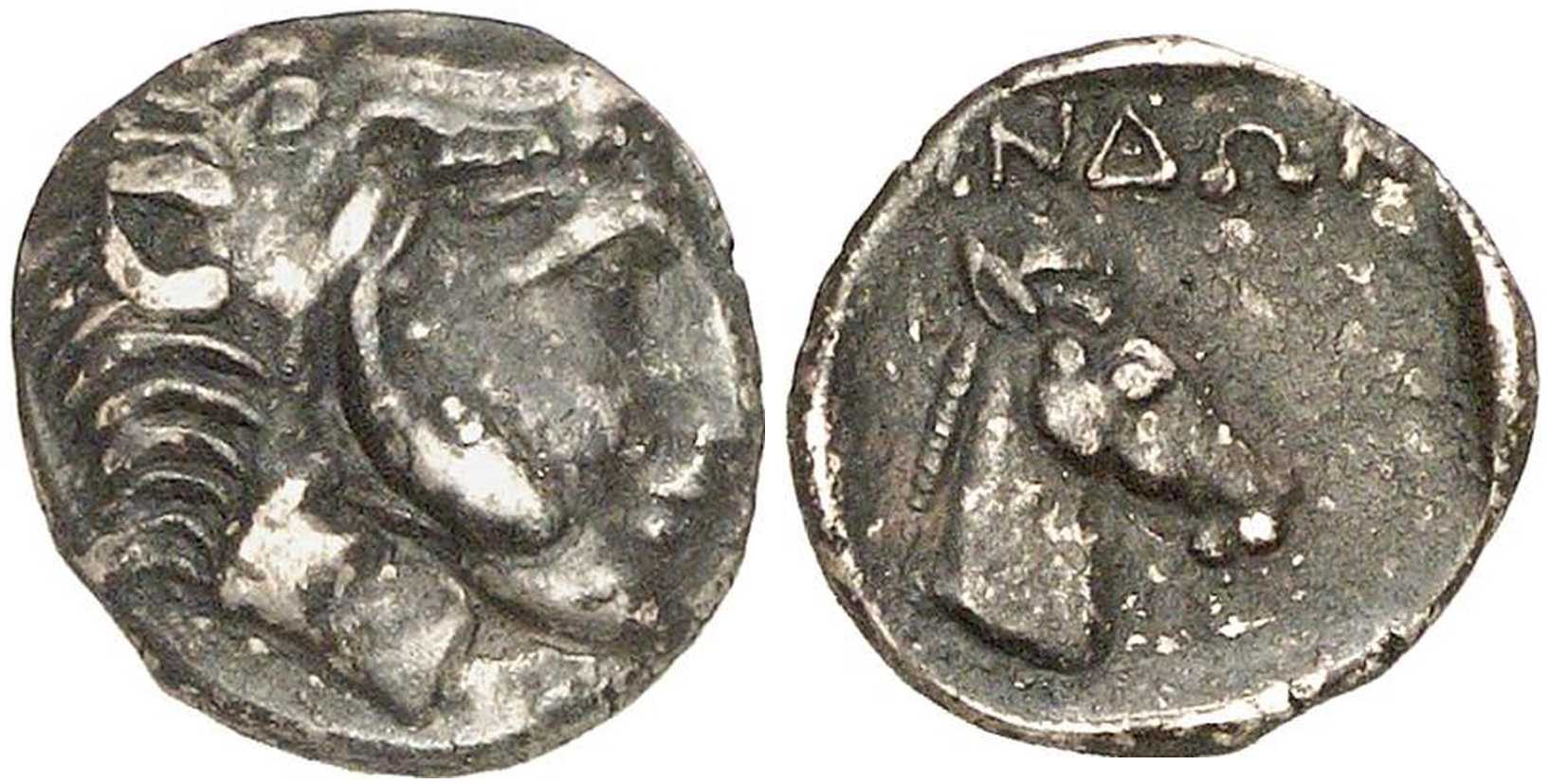 |
 |
| SHH
3293 |
SHH
3294 |
SHH
5019 |
| Herakles
/ Horse AR 11-15 mm 0.82-1.77 g 425-375 BC Anochin 42; Frolova 3/12; MacDonald 80 Statistics 2/1 Statistics 2/2 Statistics 2/3 Images 2/1 Images 2/2 |
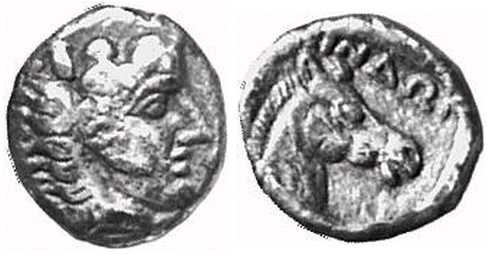 |
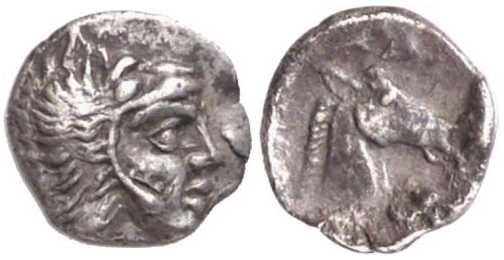 |
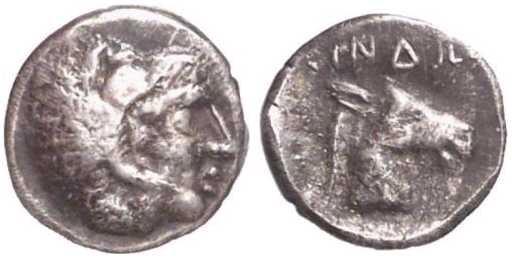 |
| SHH 1715 | SHH 2345 | SHH 2346 |
| Herakles
/ Horse AR 6-11 mm 0.07-0.44 g 425-375 BC Anochin 52; Frolova 14/18; MacDonald 81 Statistics 3/1 Statistics 3/2 Images 3/1 |
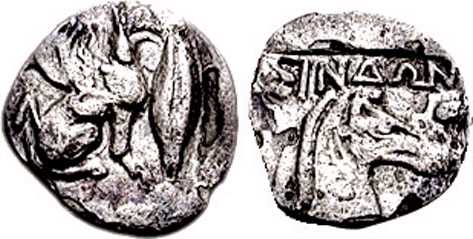 |
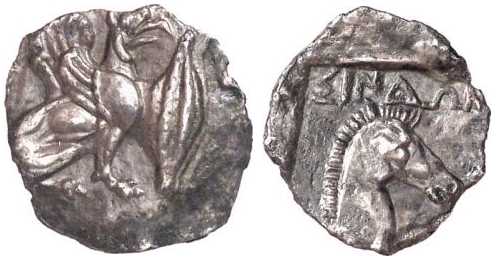 |
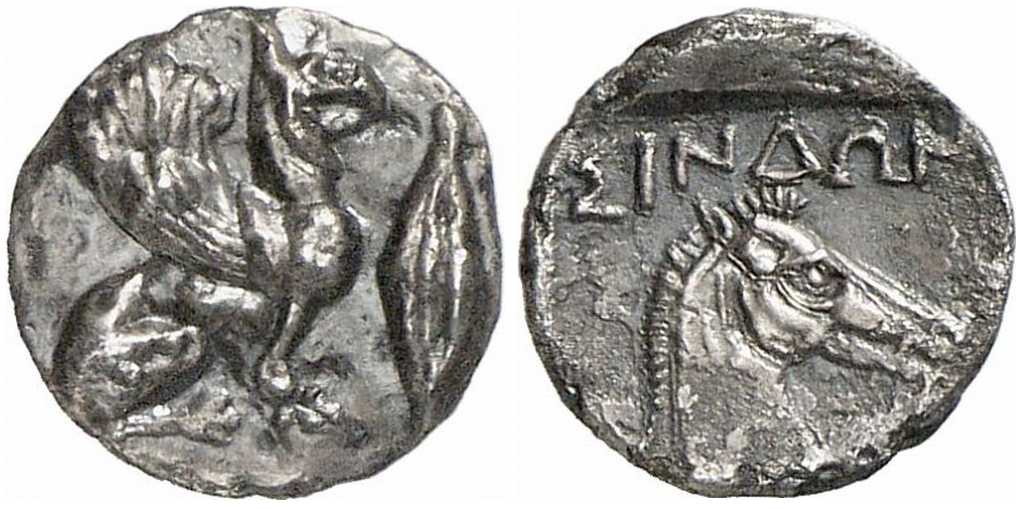 |
| SHH
1396 |
SHH
2344 |
SHH 2693 |
| Griffin
/ Horse AR 12-16 mm 0.78-1.75 g 425-375 BC Anochin 59; Frolova 32/37; MacDonald 83 Statistics 4/1 Statistics 4/2 Images 4/1 |
 |
| v330 Anokhin 60 |
| Griffin
/ Horse AR 5-9 mm 0.10-0.31 g 425-375 BC Anochin 60; Frolova 38/43; MacDonald 84 Statistics 5/1 |
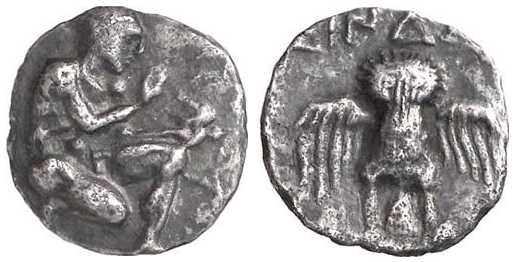 |
| SHH 2109 |
| Herakles
/ Owl AR 13-15 mm 0.88-1.44 g 425-375 BC Anochin 43; Frolova 19/23; MacDonald 79 The obverse
of this magnificent issue depicts Skythes, one of the three sons of
Herakles and the monster Echidna. According to the legend, Herakles
told Echidna that the first of their three sons who would be strong
enough to string his bow and buckle his belt would become the ruler of
Hylaia, literally 'timberland', Echidna's home region east of the river
Borysthenes. That child was Skythes, the youngest of the three
brothers, whom we see on the obverse of this coin mounting his father's
buckle after successfully stringing his bow. Thus, Skythes became king
and the eponymous ancestor of the Skythians, while his brothers Gelonos
and Agathyrsos were exiled and gave their names to neighboring tribes.
[Leu Num. 7/1218, 24.10.2020]
Statistics 6/1 Images 6/1
|
| Bull
/ Horse AR 5-6 mm 0.07-0.20 g 425-375 BC Anochin 53; Frolova 24/31; MacDonald 82 Statistics 7/1 |
| Owl
/ Horse AR 0.13 g 425-375 BC Anochin 44; Frolova ---; MacDonald --- Statistics 8/1 |
References and Links
